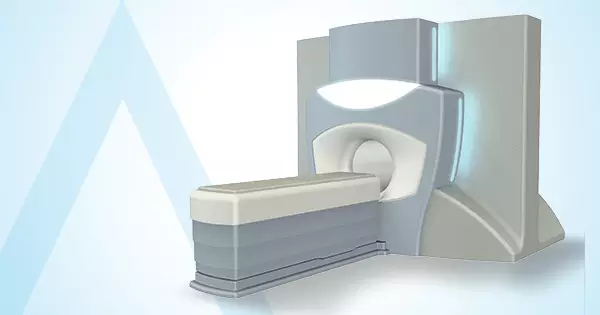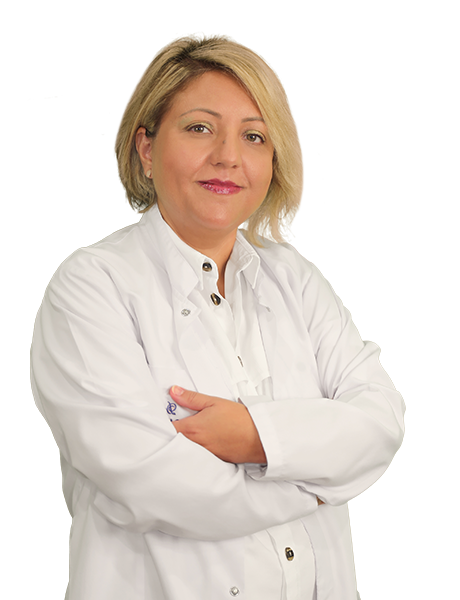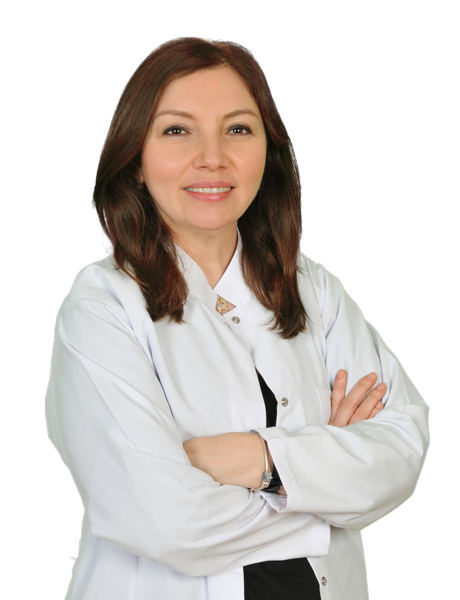Urogynecology is a combination of gynecology and female urology that deals with diagnosis and treatment of overactive bladder, prolapsed pelvic organs, urinary incontinence and genital deformities and dysfunctions.
Urinary incontinence is among common diseases in women. It is diagnosed especially in one out of every two postmenopausal women. Deformities and prolapsed of genital organs are usually detected in elderly population and they are associated with difficult delivery and chronic systemic diseases.
These diseases affect quality of life and sexual functions adversely. Urinary incontinence, organ prolapsed and genital deformities cause embarrassment in general population.
Patients with such conditions cannot clearly express complaints and usually do not know where to present. This fact causes progression of the disease, as treatment delays.
Urogynecology division cooperates with following departments for diagnosis and treatment of relevant diseases:
- Gynecology & Obstetrics
- Physical Medicine and Rehabilitation
- Neurology
- Urology
- Psychiatry
- Radiology
What are Pelvic Floor Disorders?
Pelvic floor consists of organs located in the pelvic cavity (e.g. uterus, vagina and rectum) and muscles and ligaments that keep these organs in place as well as nerves. Partial or total loss of pelvic support may result in inability to control urinary bladder and intestines, enuresis and encopresis, prolapse of pelvic organs, difficulty in voiding, pelvic pain and sexual problems.
What is urinary incontinence?
Urinary incontinence implies uncontrolled and involuntary urination. The condition can be detected in women at all age ranges. It is diagnosed especially in one out of every two postmenopausal women.
Involuntary leakage of urine is a condition that should always be investigated. Type of urinary incontinence is determined and medical or surgical treatment is decided in the light of these investigations.
What Are Types of Urinary Incontinence?
Stress urinary incontinence: Leakage of urine during certain physical activities, such as coughing, laughing, sneezing, exercise or sexual intercourse
Urge urinary incontinence: It implies involuntary leakage of urine following a sudden-onset urge to urinate while the urinary bladder is empty or full. It is usually provoked by sound of runny water (for instance, washing dishes), drinking cold beverages or exposure to cold ambient temperature. The condition occurs in unexpected times, even at sleep.
Mixed-type urinary incontinence: A person has stress and urge urinary incontinence in combination.
Following treatment modalities are used for urinary incontinence in urogynecology division:
- Bladder exercises
- Planned toilet exercises (bladder training)
- Exercises of pelvic floor musculature
- Electrical stimulation
- Various medical devices and aids
- Pharmacological treatment (medications)
- Synthetic material injections
- Botox injection into musculature of bladder
- Surgical treatment.
What is treatment of stress urinary incontinence?
Surgery is the optimal treatment for this type of urinary incontinence. Placement of a mesh beneath the urinary tract is the most effective treatment that is most commonly preferred for this condition. The mesh prevents urinary incontinence by supporting the urethra. Vaginal route is used for the operation.
A small incision (1 cm) is made beneath the urethra and a needle is inserted to place the mesh beneath the urethra. Here, surgeon aims to complete the procedure within shortest time possible, while tissue damage is minimized. The surgeon determines how much the mesh should be stretched. The surgeries carried out for this purpose are TVT (Tension free Vaginal Tape), TOT (Trans Obturator Tape) and Mini Tape.
Is there an option of medical treatment for urinary incontinence?
Medical treatment may help and is successfully used for urge urinary incontinence, although it is not an option for stress urinary incontinence. Medication treatment can be planned especially for overactive bladder that is defined as sudden-onset feeling of urination.
Specialized physicians of Acıbadem Healthcare Group act in line with multidisciplinary and holistic approach to diagnose urogynecologic conditions and treat patients with urinary incontinence, prolapsed genital organ and genital dysfunction and deformity.
Doctors
-
![Prof. A. TANER USTA, M.D.]() Prof. A. TANER USTA, M.D.
Urogynecology
Prof. A. TANER USTA, M.D.
Urogynecology
Book an Appointment
-
![Prof. FARUK SUAT DEDE, M.D.]() Prof. FARUK SUAT DEDE, M.D.
Urogynecology
Prof. FARUK SUAT DEDE, M.D.
Urogynecology
Book an Appointment
-
![Prof. FUAT DEMİRCİ, M.D.]() Prof. FUAT DEMİRCİ, M.D.
Urogynecology
Prof. FUAT DEMİRCİ, M.D.
Urogynecology
Book an Appointment
-
![Prof. HÜSNÜ GÖRGEN, M.D.]() Prof. HÜSNÜ GÖRGEN, M.D.
Urogynecology
Prof. HÜSNÜ GÖRGEN, M.D.
Urogynecology
Book an Appointment
-
![Prof. M.FARUK KÖSE, M.D.]() Prof. M.FARUK KÖSE, M.D.
Urogynecology
Prof. M.FARUK KÖSE, M.D.
Urogynecology
Book an Appointment
-
![Prof. METE GÜNGÖR, M.D.]() Prof. METE GÜNGÖR, M.D.
Urogynecology
Prof. METE GÜNGÖR, M.D.
Urogynecology
Book an Appointment
-
![Assoc. Prof. CEREN YILDIZ EREN, M.D.]() Assoc. Prof. CEREN YILDIZ EREN, M.D.
Urogynecology
Assoc. Prof. CEREN YILDIZ EREN, M.D.
Urogynecology
Book an Appointment
-
![Assoc. Prof. ELİF GANİME AYGÜN, M.D.]() Assoc. Prof. ELİF GANİME AYGÜN, M.D.
Urogynecology
Assoc. Prof. ELİF GANİME AYGÜN, M.D.
Urogynecology
Book an Appointment
-
![Assoc. Prof. EMİNE KARABÜK, M.D.]() Assoc. Prof. EMİNE KARABÜK, M.D.
Urogynecology
Assoc. Prof. EMİNE KARABÜK, M.D.
Urogynecology
Book an Appointment
-
![Assoc. Prof. ÖZGÜÇ TAKMAZ, M.D.]() Assoc. Prof. ÖZGÜÇ TAKMAZ, M.D.
Urogynecology
Assoc. Prof. ÖZGÜÇ TAKMAZ, M.D.
Urogynecology
Book an Appointment
-
![Assoc. Prof. ÖZLEM ÖZGÜR GÜRSOY, M.D.]() Assoc. Prof. ÖZLEM ÖZGÜR GÜRSOY, M.D.
Urogynecology
Assoc. Prof. ÖZLEM ÖZGÜR GÜRSOY, M.D.
Urogynecology
Book an Appointment
-
![Assoc. Prof. SELİN ÖZALTIN, M.D.]() Assoc. Prof. SELİN ÖZALTIN, M.D.
Urogynecology
Assoc. Prof. SELİN ÖZALTIN, M.D.
Urogynecology
Book an Appointment
-
![BİRGÜL KARAKOÇ, M.D.]() BİRGÜL KARAKOÇ, M.D.
Urogynecology
BİRGÜL KARAKOÇ, M.D.
Urogynecology
Book an Appointment
-
![BURCU YILMAZ, M.D.]() BURCU YILMAZ, M.D.
Urogynecology
BURCU YILMAZ, M.D.
Urogynecology
Book an Appointment
-
![CANAN GENİM ERDEM, M.D.]() CANAN GENİM ERDEM, M.D.
Urogynecology
CANAN GENİM ERDEM, M.D.
Urogynecology
Book an Appointment
-
![EDIS KAHRAMAN, M.D.]() EDIS KAHRAMAN, M.D.
Urogynecology
EDIS KAHRAMAN, M.D.
Urogynecology
Book an Appointment
-
![GÜLAY BEYDİLLİ NACAK, M.D.]() GÜLAY BEYDİLLİ NACAK, M.D.
Urogynecology
GÜLAY BEYDİLLİ NACAK, M.D.
Urogynecology
Book an Appointment
-
![HAKAN ÇAKIR, M.D.]() HAKAN ÇAKIR, M.D.
Urogynecology
HAKAN ÇAKIR, M.D.
Urogynecology
Book an Appointment
-
![MELİHA KOVANCI BAYRAKTAROĞLU, M.D.]() MELİHA KOVANCI BAYRAKTAROĞLU, M.D.
Urogynecology
MELİHA KOVANCI BAYRAKTAROĞLU, M.D.
Urogynecology
Book an Appointment
-
![MİNE İNAN, M.D.]() MİNE İNAN, M.D.
Urogynecology
MİNE İNAN, M.D.
Urogynecology
Book an Appointment
-
![ÖZGE KAYMAZ YILMAZ, M.D.]() ÖZGE KAYMAZ YILMAZ, M.D.
Urogynecology
ÖZGE KAYMAZ YILMAZ, M.D.
Urogynecology
Book an Appointment
-
![PARVANA SEYİDOVA, M.D.]() PARVANA SEYİDOVA, M.D.
Urogynecology
PARVANA SEYİDOVA, M.D.
Urogynecology
Book an Appointment
-
![SEMA DEMİRSOY, M.D.]() SEMA DEMİRSOY, M.D.
Urogynecology
SEMA DEMİRSOY, M.D.
Urogynecology
Book an Appointment
Hospitals
-
![Altunizade Hospital]() Altunizade Hospital
Altunizade Hospital -
![Atakent Hospital]() Atakent Hospital
Atakent Hospital -
![Ataşehir Hospital]() Ataşehir Hospital
Ataşehir Hospital -
![Dr. Şinasi Can (Kadıköy) Hospital]() Dr. Şinasi Can (Kadıköy) Hospital
Dr. Şinasi Can (Kadıköy) Hospital -
![Eskişehir Hospital]() Eskişehir Hospital
Eskişehir Hospital -
![Fulya Hospital]() Fulya Hospital
Fulya Hospital -
![Maslak Hospital]() Maslak Hospital
Maslak Hospital













































